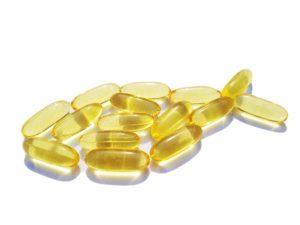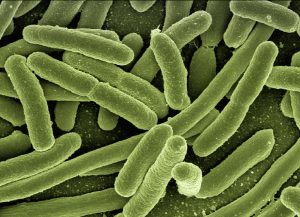Anxious Mind, Troubled Gut? Why Your Stomach Might Be Fueling Your Worry

Anxiety is more than just stressful thoughts. When most people feel anxiety, it manifests physically: a racing heartbeat, muscle tension, shortness of breath, and often, digestive upset. While it can be easy to dismiss stomach pain, bloating, or diarrhea as just being nervous or tense, the connection can run deeper. In fact, the health of your gastrointestinal tract is known to actively influence your mental health.
Based on the latest research, it’s becoming increasingly clear that the connection between the gut and the brain, the gut-brain axis, is a complex, bidirectional communication system linking your digestive tract with your brain (Cryan 2019).
The Gut-Brain Superhighway: How Your Gut Talks to Your Brain
The different channels of communication between your gut and your brain happen through several avenues:
- The vagus nerve: The vagus nerve is a critical superhighway of information directly from the brain to the gastrointestinal tract and back. Inflammation and other chemical signals can interact with the vagus nerve changing both gut and brain activity (Bonaz 2018).
- Neurotransmitters: Most of the body’s serotonin, an important mood-regulating neurotransmitter, is produced in the gut and may interact with the brain through the vagus nerve (Margolis 2021).
- Immune function: A surprisingly large percentage of the immune system resides in the gut. Inflammation along the digestive tract, often triggered by unfriendly bacteria or food, can lead to inflammation throughout the brain and body, which is increasingly linked to poor mental health (Peirce 2019).
- Bacterial compounds produced in the gut: The bacteria in your digestive tract produce numerous and various compounds, often from the breakdown of fiber. These compounds can influence the brain, levels of inflammation levels and the stress response (Dalile 2019).
When the Gut Sends Distress Signals that Contribute to Anxiety
When there are problems in the gut, it can impact the brain, causing or contributing to anxiety:
Dysbiosis
When beneficial and harmful bacteria, yeasts, or other microorganisms become unbalanced it can contribute to anxiety (Malan-Muller 2018). Mechanisms involve the immune system, vagus nerve and bacterial or fungal metabolites, as outlined above. Studies on treating dysbiosis generally suggest improvements in anxiety symptoms (Yang 2019).
Small Intestinal Bacterial Overgrowth (SIBO)
Another, more specific, form of dysbiosis is the overgrowth of bacteria in the small intestine. In healthy individuals, the small intestine maintains a low level of bacterial colonization. However, things sometimes go wrong and bacteria can overgrow. Symptoms usually mirror irritable bowel syndrome with bloating, pain, diarrhea or constipation. Patients with SIBO have been shown to have higher rates of neuroticism, stress and anxiety, potentially due to this bacterial overgrowth (Kossewska 2022).
Leaky Gut (Increased Intestinal Permeability)
When the wall of the gastrointestinal tract is inflamed or damaged, the lining can become leaky. This allows partially digested food, bacteria and other materials to leak into the bloodstream, causing an immune response and inflammation. This excess inflammation can impact the brain and mood.(Kelly 2015). Intestinal permeability appears to correlate with increased stress and stress-related mental health conditions like anxiety (Madison 2024).
Poor Nutrient Absorption
When the gut is imbalanced, it may not digest and absorb nutrients effectively. This can lead to deficiencies known to exacerbate mental health problems, like magnesium, zinc, B vitamins and others (Darweesh 2023).
Getting to the Root Cause
Unfortunately, standard approaches to anxiety treatment overlook the relationship between the gut and the brain. For anyone struggling with anxiety, it can be worth exploring more carefully the underlying factors that can contribute to anxiety symptoms. While not always a perfect indicator, if you have anxiety and significant gastrointestinal symptoms, there are obvious concerns for a potential link.
Testing can help most readily in identifying nutrient deficiencies, although with some limitations based on the nutrient. There are tests as well for leaky gut, dysbiosis and SIBO, although they need to be interpreted cautiously. SIBO testing, in particular, has numerous concerns regarding the accuracy of the results and may not provide a lot of clinical utility. In general, I often reserve gastrointestinal testing to cases that don’t respond to simpler treatment approaches.
Most patients respond to a number of basic treatment strategies:

Dietary Changes
- Eliminate or significantly reduce processed foods: cookies, chips, snack foods, instant meals, breads, baked goods and cereals
- Reduce sugars and simple carbohydrates: soft drinks, fruit juice, sugary foods and white flour products
- Emphasize vegetables, quality proteins (lean meats, wild-caught seafood), whole grains, beans, nuts, seeds and fruit
- With the help of a knowledgeable health-care provider, consider a trial elimination of foods that more commonly contribute to symptoms, including wheat and dairy
Other Strategies
- Probiotics: a number of probiotics have been found to influence mental health and reduce stress. If one product doesn’t work, consider trying another as there are marked differences between probiotic bacterial strains and their effects.
- Exercise and other stress-reduction techniques
- An overview of the approach to treating SIBO can be found here
For more difficult cases, additional treatments may be needed. Finding a health-care provider familiar with treating both mental and gastrointestinal health can be key.
You Don’t Have to Live This Way
If you have anxiety, especially if it’s accompanied by digestive issues, there are potential treatments beyond just managing symptoms. By understanding the relationship between your gut and your brain, it can be possible to unlock potential solutions.
Join our email list for weekly articles on the best in natural and integrative medicine research!
Calming the gut can help to calm the mind.



